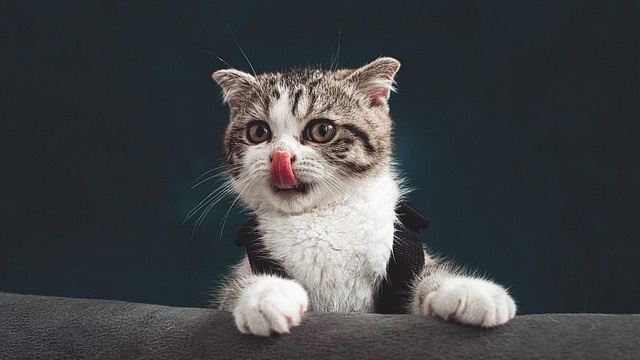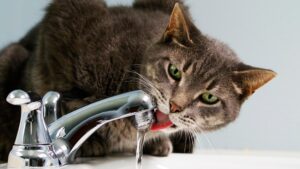Why Is My Cat Acting Weird? Behavior Changes Explained (Vet Verified)
When your normally cuddly cat becomes distant, or your quiet cat starts pacing, it’s unsettling. Here, the question “why is my cat acting weird,” pops up in your mind. And rightfully so.
Cats are masters at concealing illness or pain, a survival instinct from their wild ancestry. This means that a noticeable change in behavior is often their most direct, though subtle, way of communicating distress.
Instead of waiting for dramatic symptoms, understanding the significance of these “weird” behaviors allows you to intervene early.
In this guide, with the support of vet insight, we will help you decode your cat’s unusual actions and guide you on when to seek professional help.
Key Takeaways:
- Behavior is a Vital Sign: Subtle changes in your cat’s routine are the first and most important clues that something is wrong.
- Hiding ≠ Normal: Cats enjoy quiet spaces, but excessive or unusual hiding is a common feline response to health issues.
- Act Fast on Sudden Changes: A sudden behavioral shift warrants immediate investigation.
- Tracking Helps: Tools like a cat health tracker can help you spot subtle trends in activity and rest that might otherwise be missed.
Why Is My Cat Acting Weird?
For cats, behavior is the most telling measure of overall well-being. Unlike dogs, a cat in discomfort will rarely whimper or limp. Instead, they will alter their daily routine.
When a cat is “acting weird,” it means their behavior deviates from their established norm. This could manifest in several ways:
- Suddenly becoming clingy or, conversely, distant and avoidive.
- Excessive licking/chewing or a sudden lack of grooming (a sign of feeling unwell).
- Difficulty settling down, often an indicator of anxiety or internal discomfort.
- Excessive meowing, howling, or a sudden quietness.
“Every time Umi is hospitalized, it’s for like four days and it costs over $5,000… Maven has helped me not only save money but also save his life”
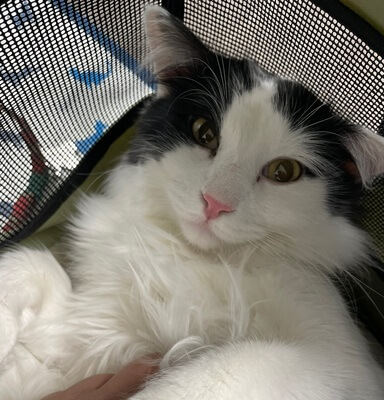
★★★★★
Jessica Ortiz
Umi
Why Is My Cat Acting Weird and Hiding?
If you find yourself asking, “why is my cat acting weird and hiding,” it’s important to understand the dual role of hiding in a cat’s life.
- Hiding as Normal Behavior: Cats naturally seek out safe, confined spaces (like a box or under a bed) for security and rest. This is normal.
- Hiding as a Red Flag: What is not normal is a cat that is suddenly or consistently inaccessible and refuses to come out, even for food, play, or attention..
Why Is My Cat Acting Weird All of a Sudden?
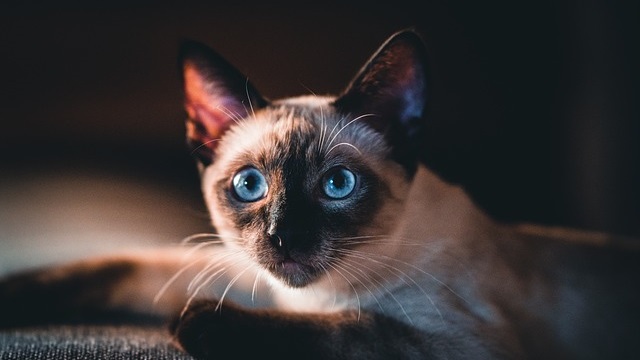
The phrase, “why is my cat acting weird all of a sudden,” often brings the most concern to pet parents.
Sudden, dramatic changes rarely happen for no reason. These acute shifts are far more likely to signal a health crisis or severe emotional trauma than a gradual behavioral quirk.
When a behavioral change is sudden, immediate attention and observation are key. Don’t wait for the behavior to “pass”, talk to the vet if you’re worried.
Common Causes of Sudden Behavior Changes
We can categorize the causes of behavioral shifts into a few core areas:
- Stress/Anxiety:
- Behavior Changes: Excessive grooming, house soiling outside the litter box (inappropriate elimination), aggression toward people or other pets, or persistent meowing/vocalization.
- Specific Causes: Separation anxiety, social stress (a new pet), or environmental frustration (lack of vertical space or enrichment).
When to See a Vet
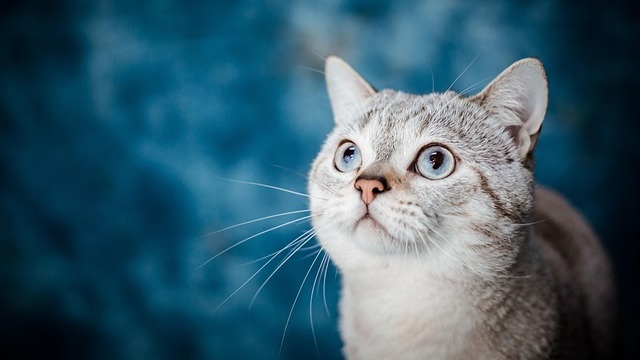
- Pain/Discomfort:
- Behavior Changes: Reluctance to jump onto furniture, sudden aggression when being handled or touched, a hunched posture, difficulty or increased straining in the litter box, or over-grooming a specific painful area.
- Specific Causes: Osteoarthritis (a common cause in older cats), dental disease, back pain, or a urinary tract infection (UTI) or blockage.
- Underlying Illness:
- Behavior Changes: Reduced appetite or a complete refusal to eat, excessive or decreased thirst, marked lethargy, increased hiding, or a significant lack of grooming leading to a messy coat.
- Specific Causes: Hyperthyroidism, Chronic Kidney Disease, Diabetes, or various gastrointestinal issues.
- Environmental Changes:
- Behavior Changes: Restlessness, excessive hiding, spraying or marking territory, or increased attempts to escape the home.
- Specific Causes: Moving to a new home, introduction of new furniture or smells, addition of a new pet or baby, or consistent, loud noises (like construction).
“Sudden behavior changes in cats are often their way of telling us something is wrong — whether it’s stress, discomfort, or illness. Paying attention early can make all the difference. As vets, we rely heavily on the owner’s report of when the behavior changed and how it presents, so keen observation is your pet’s best advocate.” — Carolina Domingues, DVM, Veterinarian at Maven Pet
Certain signs are red flags that require an immediate trip to the vet, such as::
- Difficulty breathing or collapse
- Inability to urinate
- Severe lethargy
- Sudden, unexplained aggression
- Vomiting or diarrhea lasting more than 24 hours
- Sudden unexplained weight loss or gain
Schedule a Regular Appointment if your cat exhibits:
- Consistent excessive vocalization.
- Chronic inappropriate urination/defecation.
- Hiding for more than 24-48 hours.
- Persistent change in appetite or thirst.
How the Maven Pet Health Monitor Helps Track Subtle Behavior Changes
Because cats hide their symptoms so effectively, relying solely on human memory can be challenging. This is where a digital tool becomes a game changer.
The Maven Pet Health Monitor is designed to reveal the subtle shifts in routine that often precede noticeable illness.
By tracking your cat’s daily activity, rest, and sleep patterns, the monitor establishes a baseline for what is “normal” for your pet.
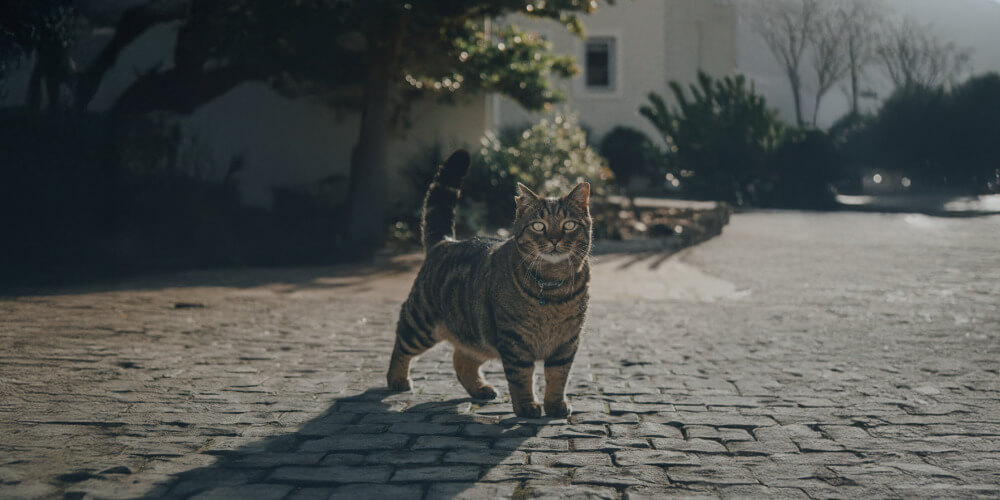
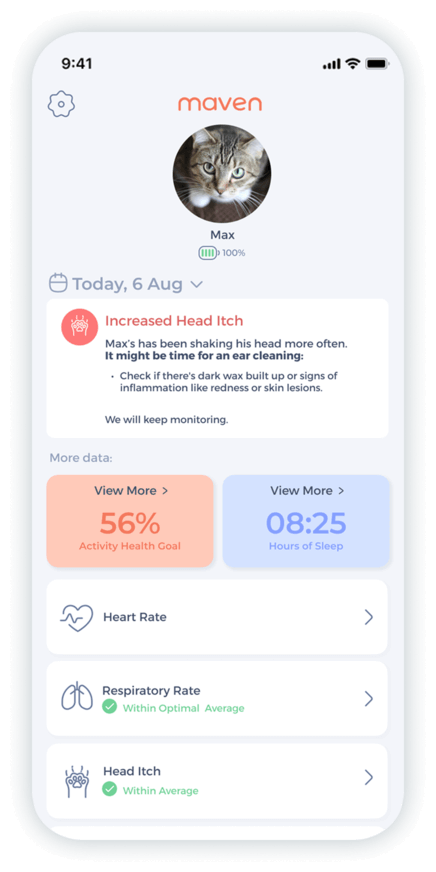
Monitor heart rate, respiratory rate, activity & rest, itch behavior.
How the Monitor Assists Owners and Vets:
- Spotting Trends: A gradual decrease in active play or a subtle increase in daytime sleep that you might miss. This can be an early indicator of developing pain (like arthritis) or chronic disease.
- Verifying Behavior: If your cat is “acting weird,” the monitor can confirm if it’s due to restlessness (anxiety/pain) or true lethargy (illness).
- Measuring Progress: After a vet visit, the device sends data to its pet health app on whether medication or a new environment is improving your cat’s activity and rest.
Takeaways Recap
- A cat acting weird is not a sign of them being difficult; it is a communication that demands attention.
- Be an observant pet parent by understanding the difference between normal hiding and excessive withdrawal.
- Act quickly on sudden, dramatic behavioral shifts, as these often signal an acute problem.
- Use technology like the Maven Pet Health Tracker to empower your observations:
- It helps reveal subtle, gradual changes in activity or rest that you might otherwise miss.
- It provides objective data for your veterinarian to better diagnose and track the effectiveness of treatment.
- Never hesitate to consult your vet when your cat’s behavior suggests something is amiss.
Maven Pet focuses on improving the quality of life of our pets with technology, using artificial intelligence (AI) to enable proactive pet care. By accurately collecting and monitoring pet data 24/7 and flagging any irregularities, Maven Pet empowers pet parents and veterinarians to stay ahead of potential health issues, ensuring the well-being and longevity of our beloved companions.

